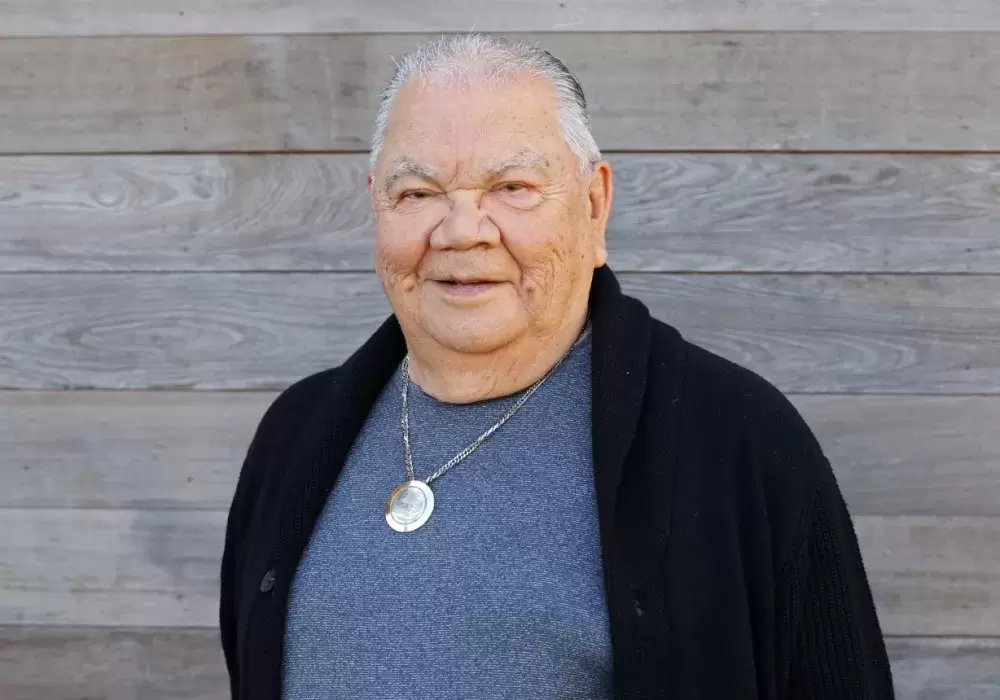Tla-o-qui-aht member Barney Williams returns to the Vancouver Island University’s Nanaimo campus as their newest Elder in Residence.
An Elder in Residence provides cultural and spiritual guidance and support, for both students and professors, through the use of Indigenous language and knowledge around campus, as well as cross-cultural sharing. They are a beacon for Indigenous students who have moved away from their communities into the urban environment, providing comfort for those away from home in a culturally-sensitive way.
“Professors come to me for advice as well,” Williams points out to Hashilthsa, going on to explain how they ask for different ways to incorporate Indigenous culture into their lectures.
For around 20 years, Williams worked as a social worker in many different communities. From Canada’s Indian Affairs, to Vancouver Island’s east coast in Nanaimo, different treatment centres on the island, to the west coast around his home community in Tla-o-qui-aht. Williams specialized in trauma, addictions, and residential school support, while using the traditional aspect of mental health to help his clients. Williams continues to seek different ways to teach mental health from a cultural perspective, and blending Western and Indigenous mental health treatments. For eight years Williams also travelled across Canada as a member of the Indian Residential School Survivors Committee with the Truth and Reconciliation Commission speaking of the horrific events that took place in the residential schools.
“I helped people realize they are more than their addictions,” Williams explained.
As a residential school survivor himself, Williams has counselled people who were dealing with the same issues he had once he had left residential school. Suffering from Post Traumatic Stress Disorder, he had turned to alcohol as a coping mechanism. Eventually he strived after a career as a social worker, then as a counsellor, to help others who had been through similar experiences.
“I have a passion for Aboriginal students to be successful,” said Williams. “I didn’t have that opportunity when I was their age.”
Williams hopes to see more Indigenous students seek higher education. As an Elder in Residence, he wants to encourage young people and help them achieve their dreams. He is there to advise, counsel, or even just to talk. Now there is more support for Indigenous youth pursuing a higher education than ever before, from counselling services, to tutoring, scholarships and funding.
Williams is fluent in the Nuu-chah-nulth language, and for more than sixty years, he served as a Traditional Keeper of the Beach for Tla-o-qui-aht, before passing the title down to his son in 2015.
He lives on Meares Island, just north-east of Tofino, with his wife Trina Williams. He is a father of six children, and a grandfather to nine, and has one great-grandson.
Williams is a VIU alumnus, who received his diploma in social work from them in 1973, when it was known as Malaspina College and University.
Alongside Williams, Maxine Hayman Matilpi of Kwakiutl/Ma’amtigilia was chosen as the second new Elder in Residence. Matilpi practices law, has been a paramedic, first aid attendant, can-can dancer, midwife, fitness instructor, marriage commissioner, chief negotiator, an Elder in Residence at NIC and a university professor.







